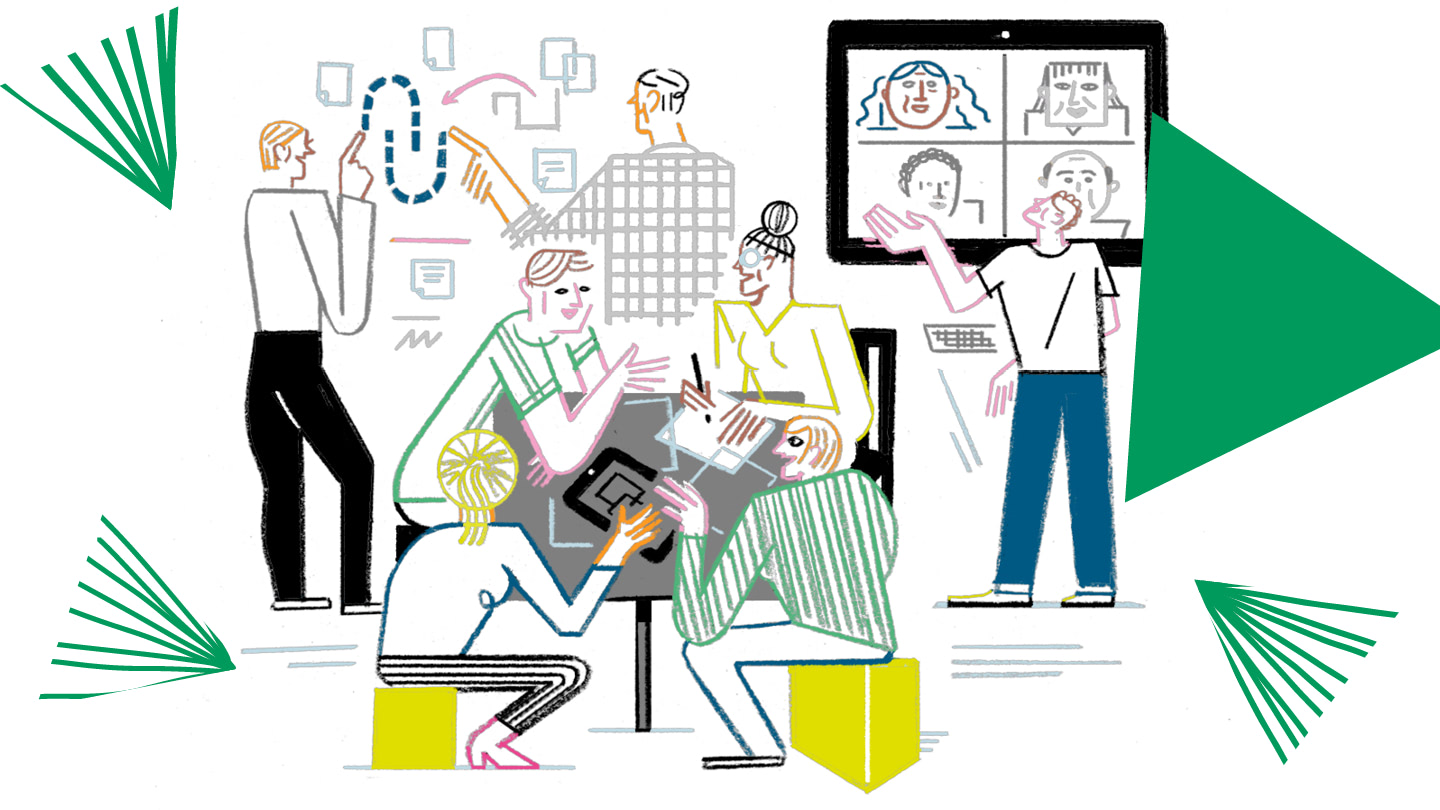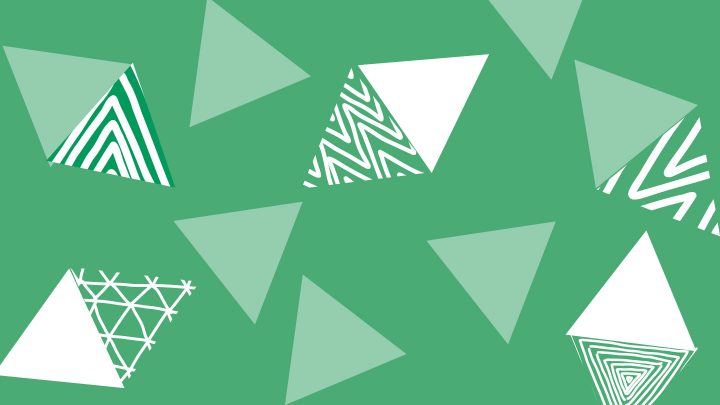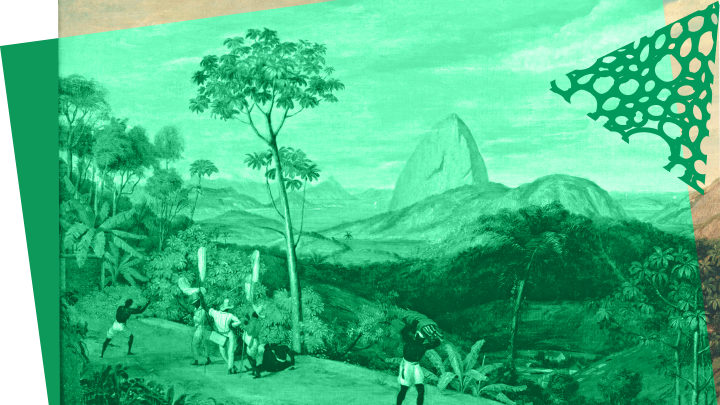5 project teams were funded in the first round of Wikimedias Accelerator program “Unlock”.
Wanted: the next Wikipedia! The UNLOCK Accelerator supports projects and ideas that contribute to an open and informed knowledge society. The response in the first round was already gratifyingly high. Five teams were accompanied in 2020 while developing innovative solutions and approaches. In the future, UNLOCK will expand to the entire European region.
“What knowledge formats are people working on? Which project has the potential to become the next Wikipedia? Who are the people that don’t yet associate themselves with our Movement, even though they are committed to the same vision?” These questions, says Kannika Thaimai, Head of Innovation Engine at Wikimedia Deutschland, provided the impetus for the UNLOCK Accelerator, a program that was launched for the first time in May 2020. Teams from a wide variety of contexts were able to apply for it. “Students, people from the cultural and creative sectors, social entrepreneurs,” says Thaimai. “We wanted to address all people working on meaningful projects of a technical or non-technical nature with a focus on Free Knowledge instead of profit.”
Five teams were selected by an advisory panel in the first round of UNLOCK – out of 56 applications, which was a surprisingly high response. Submissions were possible for five topic areas that reflect current challenges on the way to a digital, fair and inclusive knowledge society. Following Thamai’s description, we learn that there are “knowledge networks” among them – linked to the question which technical developments are out there that could have a similar impact as Wikipedia. Under the keyword “knowledge production”, innovative business models for open source and Free Knowledge projects beyond the dictates of the market were sought. Behind “knowledge society,” in turn, is the idea of how we can create a new momentum for Free Knowledge, a kind of Fridays for Free Knowledge. According to Thaimai, the field “knowledge competence” received the most applications. This is about access to digital opportunities to participate in knowledge, a “digital literacy” that focuses not only on technology but also on understanding, communicating and evaluating knowledge.
The UNLOCK Accelerator offers participants a three-month structured online program. The selected teams are methodically accompanied by coaches who help them develop their idea up to the prototype stage. Networking with other experts takes place on a selective basis to provide impetus. The exchange of experiences between the teams is also actively encouraged.
In addition to the “Face the Facts” app (see Focus), the projects selected in 2020 included “Audiopedia” which aims to create audible knowledge. “Audiopedia” was designed for countries in the global South and specifically for marginalized population groups. Accordingly, “Audiopedia” is less about encyclopedic contributions and more about educating people on everyday questions, such as “How do I feed my child a healthy diet, what do I need to pay attention to in the case of this or that illness?” explains Thaimai. Another winning project was “Community-based certification of open source hardware”. According to the project manager, the term open source is usually only associated with software – here the aim would be to document the blueprints of hardware sustainably and with DIN certification (“What does it actually look like inside of my smartphone?”).
The first edition of the UNLOCK Accelerator produced many valuable insights. For example, how much it matters to have the right composition of teams so that they can work productively.
For the second round, the UNLOCK team – that, in addition to Thaimai, includes program managers Lucia Obst and Mia Kunert –has now implemented some changes that broaden the Accelerator’s horizons: “The project will run in English in 2021 and is looking for applications from all over Europe,” says Thaimai. Instead of five thematic areas, there is now a thematic focus. Specifically, the search is on for ideas and solutions – again, technical and non-technical – that strengthen trust in information and technologies. Also, up to seven teams are now supported instead of five.
“We are excited about the many great ideas coming from the European region and look forward to supporting even more people with the expansion,” says Kannika Thaimai.
FOCUS: „FACE THE FACTS“
“Face the Facts” – funded by Wikimedia’s UNLOCK Accelerator – is an app that uses a cell phone camera to make information about politicians visible directly on election posters.
“We need the best people we can get because we have a hell of a lot to do,” Victor Bellu thinks. He’s referring to the political personnel in charge of navigating our country’s destiny –in the face of enormous present and future challenges : “Climate change, digitalization, automation, plus extremism, and waves of refugees fleeing from poverty and war.” But considering the enormity of the tasks, Bellu thinks that we generally know very little about those who are supposed to handle the tasks as elected representatives of the people. “Most members of parliament get in through lists drawn up by political parties at the German federal state level,” Bellu continues. This makes it even more difficult for politicians to become known among the population.
That’s why Bellu – a student at CODE Berlin|University of Applied Sciences – and fellow students Fabian Volkers, Finn-Jordan Max, Oliver Köditz, Richard Krümmel and Takahiro Mitsui have come up with a project that aims to ensure greater transparency and freely accessible information: the web app “Face the Facts. The principle is very simple: anyone can use their cell phone camera to call up information about politicians directly from election posters. Technically, this scan works via text recognition (the name on the poster is read in) and face detection – which is more advisable than facial recognition software, whose algorithm might fail if a billboard is too badly defaced.
The “Face the Facts” team made it into the UNLOCK Accelerator program with this idea – and received valuable support to further develop their prototype. “Without UNLOCK, we wouldn’t exist, or we wouldn’t have come anywhere near this far,” says Victor Bellu.
What the app already offers are features on MPs’ political focus – including committees they spend time on, past voting record or sideline activities. In the case of the candidate Christian Lindner of the FDP who was used as an example, this immediately caused technical problems, Bellu explains. His list of sideline activities listing every presentation) covered several pages and took up too much space.
The information that Bellu and his fellow campaigners feed into their app is all freely available. “We just gather and process it.” Sources include the Bundestag site, and much data also comes from Abgeordnetenwatch.de, such as information on political positions. “Abgeordnetenwatch proposes theses in the candidate check, for example: ‘Should Amazon & Co be taxed more, yes or no?’ – and politicians can comment on this with a short explanation.” What’s important to Bellu is that “Face the Facts” is all about objective information – and almost entirely without editorial intervention.
Currently, the team is working on other features, such as “Media Echo”. This is a section similar to the “Controversies” section in Wikipedia articles and is intended to provide a neutral summary of how the politician was reported on in the media during the past legislative period. An edit-a-thon with the Wikidata database is also planned.
The app is built using open source. It is also built in such a way that it can easily be used in other democratic countries with similar political systems. Bellu would be happy to see any adaptation, saying, “Just make sure the information is neutral and people get value from it. In the end, ‘Face the Facts’ should be a tool to help us elect better politicians – across parties. It is not an election campaign tool.”



